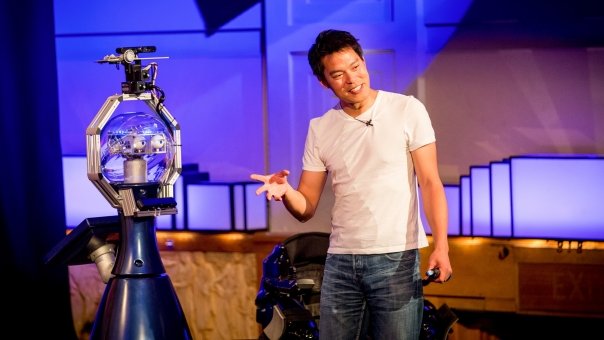Vote #Dementia
09 Jun 2014
Written by Dr Kevin Fong
The vote for Longitude Prize 2014 is now open, and I want you to back my campaign to help dementia secure the £10 million prize fund.
Six challenge areas have been proposed, each one vying for a chance to be awarded the £10 million prize towards the development of technology-based solutions. The six are: water, flight, paralysis, food, antibiotics and the challenge that I chose to champion: dementia.
I’m a doctor trained in anaesthesia and intensive care medicine. My career has been focused on the acute challenges of medicine and the most critically ill and injured patients. It’s been about protecting life at the edge of all possibility.
Why dementia?
It seems a million miles away from the creeping challenge of dementia. But in essence they are the same pursuit. It is the effort to push the limits of life in the hope that we might live as well as possible for as long as possible.
A century of rapid progress in science, medicine and technology has transformed our expectations of life and survival.
A child born in the UK today has a better than 1 in 4 chance of seeing its hundredth birthday.
But that success brings new challenges. As we live for longer, we are more susceptible to chronic illnesses associated with the decline of the human body. And as surely as hearts, lungs, livers and kidneys fail so too does the human mind.
The new challenge of our time
Dementia has emerged as the new challenge of our time. It threatens not just our health but our very identity.
But while the language around dementia is apocalyptic, it doesn’t necessarily mean that it is waiting to swallow us all as soon as we grow old.
It may surprise you to know that dementia remains the exception rather than the norm even in those over the age of 80. And, according to the Alzheimer’s Society, of the 800,000 who have dementia two thirds continue to live at home and nearly that proportion again report that they live well.
This is not the picture of dementia that we usually presented with.
We need to find ways of living better for longer
The hope we should have for dementia is the hope we’ve always had in the face of life-threatening and incurable disease: that we might live, and live well, for as long as possible.
That’s why I think it needs to be the focus of Longitude Prize 2014.
This is not about looking for a cure, or even an effective treatment. The £10 million prize fund would be a drop in the ocean for dementia research.
Instead, we would use the prize fund to look for new and innovative ways to support people suffering from dementia to live well in their own homes.
If dementia won the vote, it would be an act of defiance, a statement that we choose to continue to fight, even against a disease as formidable as dementia.
Dementia research is chronically under-resourced and we need a wider debate about why it is currently so low on the Government’s list of funding priorities. But while we wait for that debate to be properly heard, while we wait for science and medicine to develop the therapies we so badly need, this prize – through the application of novel technologies – might give us a chance to make a first stand against this terrible disease.
The undiscovered country
We know that the 2014 incarnation of the Longitude Prize is different from the original one in 1714.
Save perhaps for this: the original Longitude Prize yielded a timepiece of extraordinary precision which allowed us to better navigate the oceans and with them the world’s newly discovered countries.
In the 21st century the continent of great age lies open for exploration. And it will take all that science, technology and medicine has to offer to make it navigable.
Let’s make it happen.
VOTING IS NOW CLOSED.
Photo credit: Dr Kevin Fong, copyright BBC, Guy Levy.
This blog was originally published on the Nesta website. Read the original blog post.

